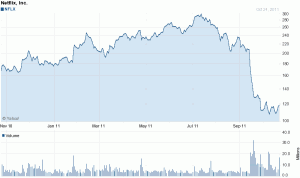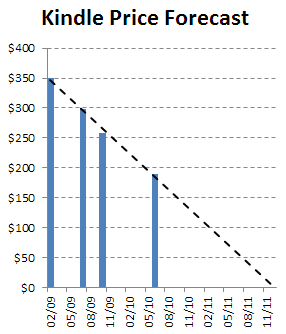It is well known that author’s clamor for Oprah’s endorsement because the book sales go bonkers, and sales of the author’s other books also go bonkers. The conventional wisdom is that publishers love Oprah because she pumps up book sales.
On the other side of Chicago, however, Northwestern’s Craig Garthwaite has another tale to tell: Oprah’s endorsements reduce overall book sales:
In the publishing sector, endorsements from the Oprah Winfrey Book Club are found to be a business stealing form of advertising that raises title level sales without increasing the market size. The endorsements decrease aggregate adult fiction sales; likely as a result of the endorsed books being more difficult than those that otherwise would have been purchased.
It is I who emphasized that startling finding. Here’s how Garthwaite describes it:
At the genre level, the post-endorsement period is marked by large sales declines in the romance, mystery, and action categories. These genres were popular prior to the endorsements in the geographic areas demonstrating the largest endorsement responses. Using quantitative measures of text readability, I show that endorsed titles require one additional year of education to read than is typical for romance, mystery and action books. Furthermore, the post-endorsement sales decline was largest following the endorsement of classic novels, which require nearly four more years of education to comprehend than typical romance, mystery, or action titles. Since the cost of consuming a book is the combination of the retail price and the opportunity cost of the time spent reading the text, the post-endorsement sales decline in publishing should be considered similar to endorsements in other sectors that shift consumers towards more expensive products.

I read through the paper this evening, and this will likely wind up on my Industrial Organization reading list for next year. We’ve seen a similar phenomenon in our analysis of the beer industry — advertising doesn’t increase overall sales so much as it redistributes sales within the sector. Indeed, we kick off that class with a simple advertising game model, where advertising expenditures are treated as a prisoner’s dilemma, and we learn why incumbents are often copacetic with an advertising ban. The analogy here, I guess, is that a beer producer that heavily advertises a new, difficult-to-drink product could cause an overall beer consumption to go down (possible ad line: New Bud Super Dark: It’s Like Drinking a Bagel ! ).
I wonder if the “light beer” revolution of the 1970s had the opposite effect?
Via the fellas at Marginal Revolution.

